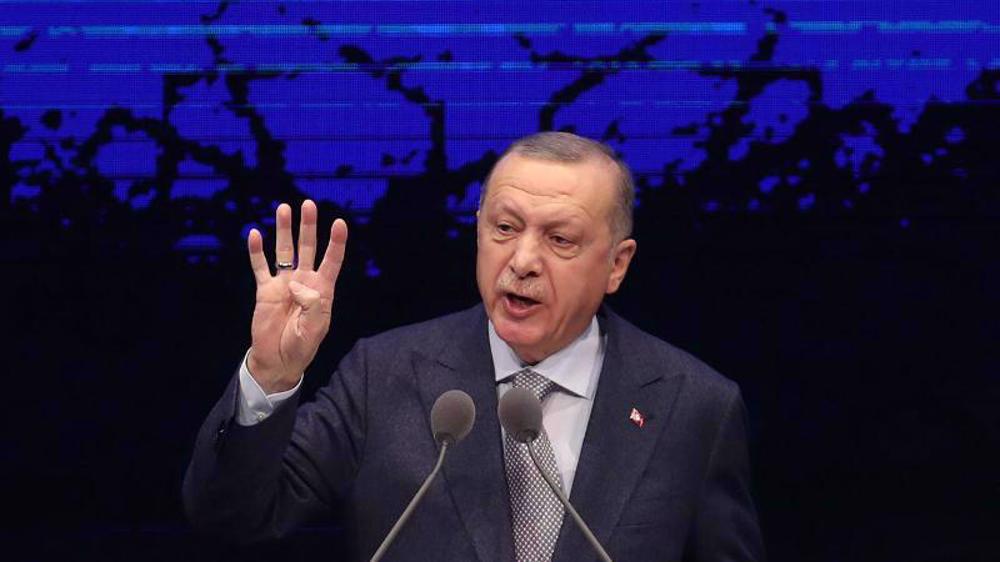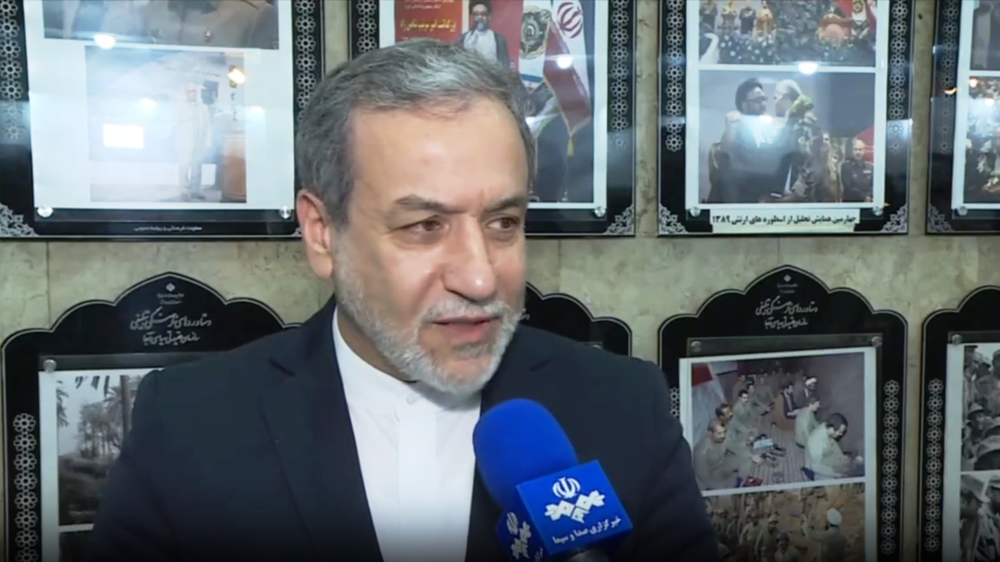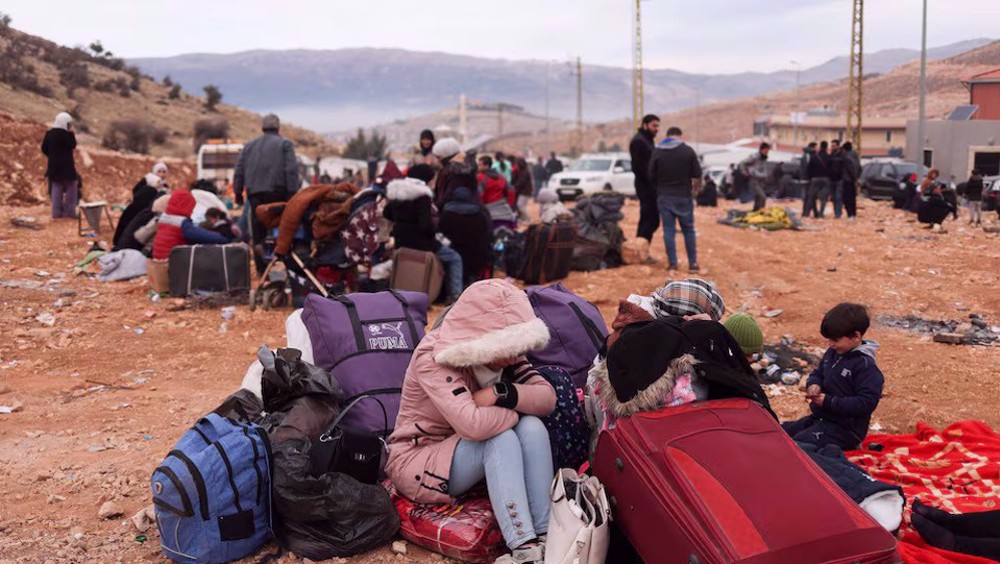Syria facing US oil theft, Turkey occupation: Muallem
Syrian Foreign Minister Walid al-Muallem says his country is facing a “continued aggression” from Turkey and a “methodical plundering” of its oil by the United States, adding that the two countries, along with Israel, are conspiring to hinder counterterrorism efforts by Damascus.
Syria's official news agency SANA quoted Muallem as making the remarks in a meeting with his Russian counterpart, Sergei Lavrov, in Moscow on Monday.
“The US, Turkey, and the Israeli enemy, along with a number of states in the region, continue to conspire against Syria to hinder its joint efforts with Russia to fight terrorism, particularly Jabhat al-Nusra,” Muallem said, referring to a terrorist group formerly known as al-Nusra Front.
The Syrian foreign minister also praised the use of veto by Russia and China against draft resolutions at the UN Security Council that exploit humanitarian issues and violate the sovereignty of the Arab country, saying the double veto affirms Russia and China’s commitment to Syria’s sovereignty.
Lavrov, for his part, said an integral part of bilateral cooperation between Moscow and Damascus is continuing to coordinate and cooperate in the relentless battle against terrorist organizations in Syria until they are eliminated.
“Syria is transitioning into the stage of restoring stability, reconstruction, and launching huge economic projects, which has become a reality after the Syrian Arab Army established control over large areas and liberated them from terrorism with the support of the Russian Aerospace Forces,” SANA quoted Lavrov as saying.
The Russian foreign minister Lavrov also called on the international community to facilitate the return of the displaced Syrians to their homeland, and to take into considerations all the developments in Syria when planning to provide humanitarian aid.
In late October, Washington reversed an earlier decision to pull out all of its troops from northeastern Syria, announcing the deployment of about 500 soldiers to the oil fields controlled by Kurdish forces in the Arab country.
The US claimed that the move was aimed at protecting the fields and facilities from possible attacks by the Daesh Takfiri terrorist group. That claim came although US President Donald Trump had earlier suggested that Washington sought economic interests in controlling the oilfields.
Pentagon chief Mark Esper then threatened that the US forces deployed to the oil fields would use “military force” against any party that might seek to challenge control of the sites, even if it were Syrian government forces or their Russian allies.
Syria, which has not authorized American military presence in its territory, has previously said the US is “plundering” the country’s oil.
Moreover, Trump’s decision to partially withdraw US troops from northeastern Syria cleared the path for a Turkish incursion into the region. Ankara says it wants to purge the region of Kurdish YPG militants, which it regards as terrorists affiliated with the homegrown PKK militant group.
Damascus is in great need of its major oil deposits in order to address its energy needs and rebuild the country amid crippling Western sanctions.
Syria is currently extracting oil at only 10 percent of its pre-war capacity.
Iraq exhuming remains of 100 Kurdish women, children killed by Saddam
Panama rejects talks with US over canal control
HTS rulers name al-Qaeda operative as Syria's new spy chief
Iran voices concern about rising insecurity, violence in Syria
VIDEO | Karachi sit-in amplifies nationwide call for justice for Parachinar victims
Iran strongly condemns Israeli bombing of Yemen's civilian infrastructure
VIDEO | Press TV's news headlines
VIDEO | Israel and Iran’s Nuclear Facilities?











 This makes it easy to access the Press TV website
This makes it easy to access the Press TV website